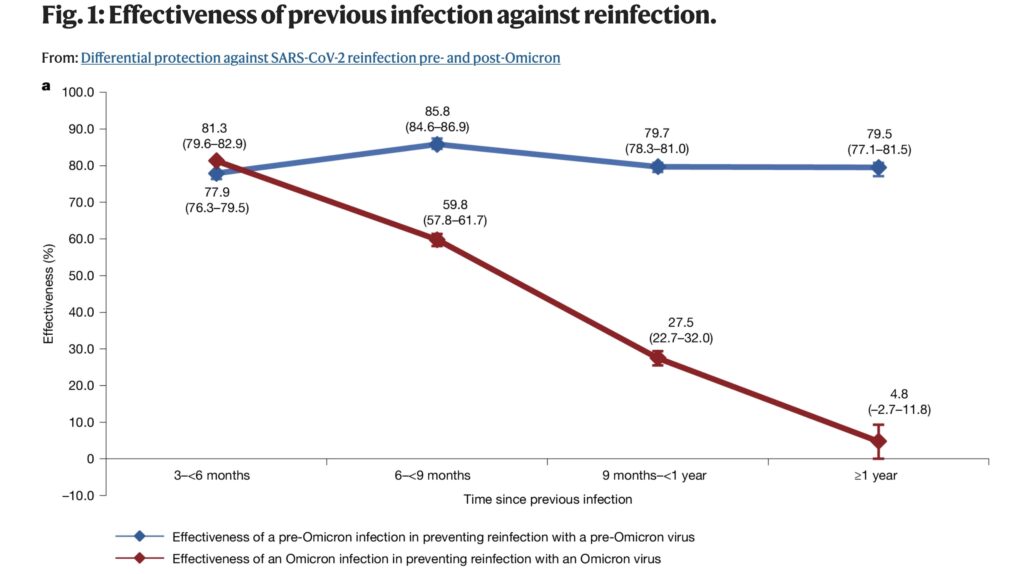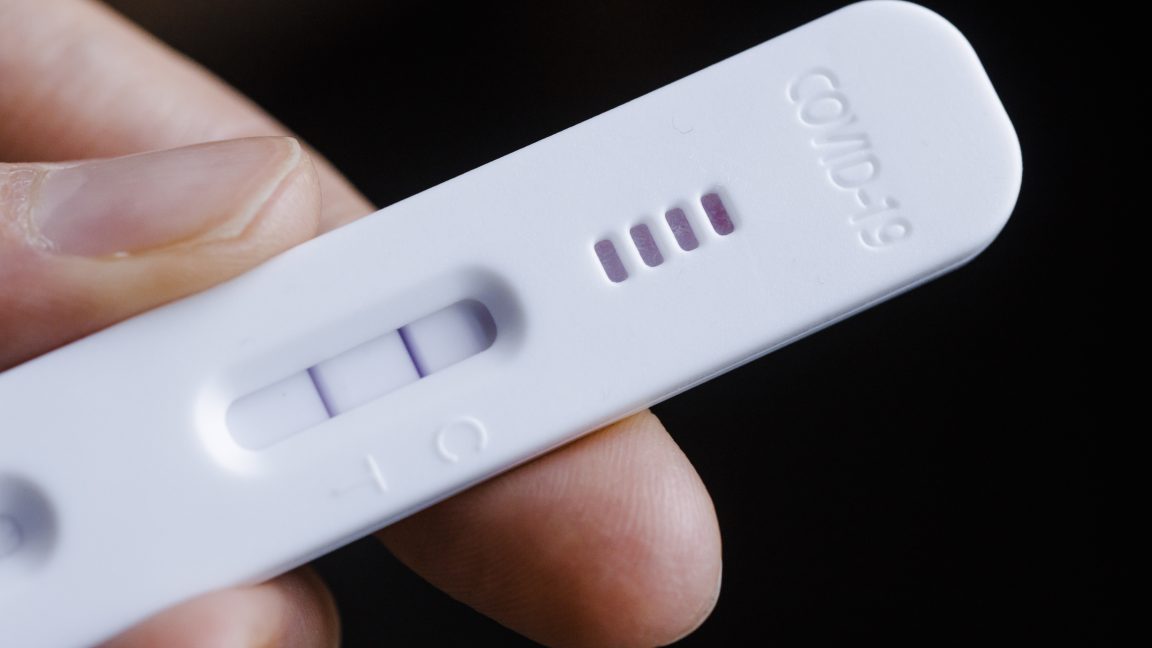With the rise of omicron came the fall of long-lasting protection from reinfection with the pandemic coronavirus SARS-CoV-2, according to a study published in Nature.
Using population-wide data from Qatar, researchers found that a COVID-19 infection from a pre-omicron variant of SARS-CoV-2 (such as alpha or delta) yielded around 80 percent protection from reinfection with another pre-omicron variant—and that level of protection lasted over the course of at least a year. But, things changed in late 2021 with the emergence of omicron, which still reigns supreme today. According to the data, an infection with omicron provided an initial protection of nearly 80 percent between the first three to six months after infection, but that protection rapidly declined. Between nine months and a year, protection fell to around 27.5 percent, then dropped to a negligible 5 percent after a year.

The results of infection-derived protection were similar regardless of whether people were vaccinated or unvaccinated, a sub analysis found. The study did not evaluate vaccine efficacy. A study published last year in the New England Journal of Medicine estimated that the 2023–2024 mRNA COVID-19 vaccines were 52 percent effective at preventing infection after four weeks, with effectiveness falling to 20 percent at 20 weeks (a little over four and half months).
The only bright spot in the new data was that regardless of what a person was infected with—pre-omicron or omicron—protection from severe, critical, or fatal COVID-19 during reinfection was nearly 100 percent, and that level of protection was sustained for over a year.
It should be noted, though, that the population of Qatar is predominately male and relatively young. The median age of the over 1.5 million people who represented cases and controls in the study was between 32 and 33. So, the findings here may not be generalizable to populations that skew older. For context, the median age of the US population is around 39.
“Here to stay”
Still, the stark difference in protection from reinfection between the pre- and post-omicron eras of the pandemic is clear—and it's critically important for our current handling of SARS-CoV-2. The reduction of long-term protection from reinfection means that we will continue to face periodic waves of infection and that annual updated vaccines will be critical for dulling potential disease spikes and protecting vulnerable people.



 Loading comments...
Loading comments...
